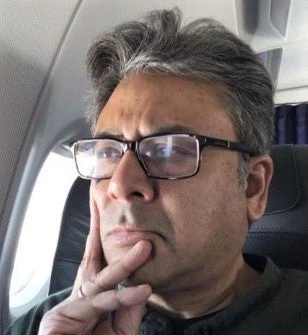 Citizens in Nigeria. Photo: Arne Hoel / World Bank
Citizens in Nigeria. Photo: Arne Hoel / World Bank
In Nigeria’s Kaduna State, the government has quietly improved service delivery and increased the effectiveness of public spending by enlisting citizens as its “Eyes and Ears” on the ground. Through this program, which receives financial and technical support from the World Bank’s Economic Transformation Program for Results (PforR), the state government has been a global leader in leveraging technology to provide more citizen-centric service delivery. The initiative has also been grounded in Kaduna’s membership in the Open Government Partnership.
Several years ago, officials in Kaduna sought a way to keep track of spending on infrastructure projects, which audits showed had been underperforming overall. The government developed a mobile app that staff could use to report on the status of projects such as new schools, roads, health clinics, and water and sanitation facilities across Kaduna.
Soon, it became clear that the small number of government data collectors could not keep up with the thousands of ongoing projects, prompting the idea of engaging citizens to help. Since then, the government has created feedback mechanisms across a range of platforms to broaden and deepen citizen participation. Through a smartphone app, or via phone call, text message, or social media, citizens can send updates to officials on the status of projects in their communities. The Eyes and Ears program also employs low-tech methods, such as town hall meetings and a weekly phone-in local language radio program, to ensure that everyone can find a way to participate.
In September 2020 alone, the government received 141 reports of issues via multiple platforms (Twitter, media chat, toll-free call center, and town hall meetings) and was able to resolve 90 of them within the month. The government also makes an effort to reach out to some of the citizens who lodge concerns—to follow up and request more information, or to let them know about progress made. One user, for example, reported that “six months after I complained about no hospital in my area, the government called me to show me the site of a new hospital constructed.”
Through Eyes and Ears, the government gets daily feedback on project quality and has better insight into citizens’ needs and perceptions of government services, allowing it to prioritize spending more effectively. The share of infrastructure projects completed on time has increased significantly, and social indicators reflect improvements in public administration. For example, the share of women giving birth at home has declined from 70 percent to 48 percent in two years. Meanwhile, more than 16 contractors have been blacklisted based on citizens’ reports of shoddy work. The World Bank will continue to provide support as the government works to enhance capital investments through the expanded use of citizen feedback.
Kaduna’s government believes the state can be a driver of regional economic growth. To realize this potential, the government has made citizen engagement a central part of a broader GovTech strategy to improve service quality and accessibility for individuals and businesses. GovTech is a whole-of-government approach that blends digitalization with business process re-engineering: it’s not only about technology, but depends on a combination of strong leadership and an ever-improving social contract with citizens.
As the COVID-19 pandemic continues to put governments around the world to the test, there is a heightened urgency to understand citizen needs in real time --especially at the subnational level where critical services (such as healthcare and schooling) are delivered. The GovTech architecture put in place through the Eyes and Ears initiative is now enabling Kaduna’s government to respond more nimbly and effectively to the pandemic. For example, the State was able to involve citizens in the 2021 draft budget process virtually, so that despite COVID-19 it could sustain its commitment to engagement and accountability.
As the experience during the pandemic has shown, mechanisms that improve the interface between the government and the public can allow governments to be more responsive to changing circumstances or emerging crises. Over time, such approaches—built on technology, transparency, and trust—could help create more resilient societies.





Join the Conversation